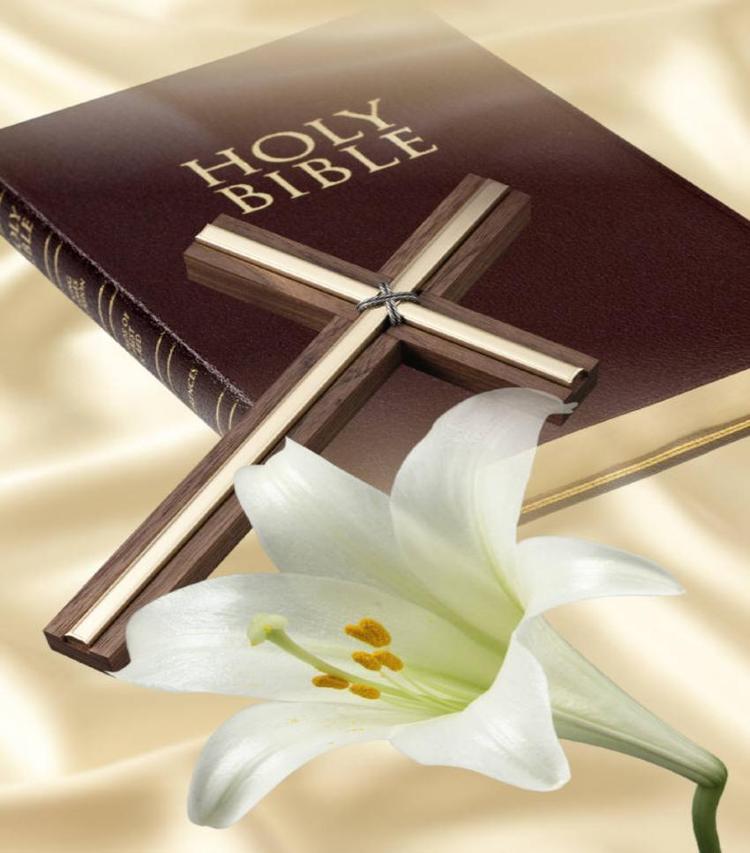
The Sunday Mail

Religion Writers
CHRISTIANS from different denominations have insisted on the significance of Easter despite the pagan origins of the holiday.
While some churches remain steadfast on the shaky foundations on which Easter is premised, others say what is important is the spirit of the holiday and not the pagan-related dates on which it is observed.
Dr Taremeredzwa Bishau, a New Testament scholar, said the problem was that historians concerned themselves with dates and venues.
“But New Testament scholars know that for early Christians, dates were not as important as the events that were celebrated. What happened was that Jesus was transforming already existing Jewish feasts which were celebrated on specific dates following the Jewish calendar giving them new meaning in the light of his advent.
“He transformed the Passover celebrations into celebrations about his sacrifice on the cross. He gave the Passover meal a new meaning and called it the new covenant. That is what was important for the early Christians. Just like with the birth of Jesus, the early Christians never specified the actual date of birth because what was critical and therefore what was celebrated was the Epiphany itself,” he said.
Passover was celebrated on Nissan 14.
The Jews use a lunar calendar while the Roman one is based on the sun. This means the Jewish year is almost always shorter than the Roman calendar by about 11 days.
Hence Nissan 14 changes every year. As such depending, on when Nissan 14 falls, Easter dates are pegged on the days immediately following it.
“The New Testament has no problems with these fluctuations because the dates are only symbolic. It is the meaning of the ritual festival and the significance of the resurrection for the Christian faith that is important,” Dr Bishau said.
Easter is said to have been derived from Eostre, the name of the Anglo-Saxon lunar goddess, who also provides the root for the female hormone oestrogen.
Eostre’s feast day was held on the first full moon following the vernal equinox. On this date the goddess Eostre is believed by her followers to mate with the solar god, conceiving a child who would be born nine months later on Yule – the winter solstice which falls on December 21st.
In addition two of Eostre’s most important symbols were the hare (because of its fertility and because people “see” a hare in the full moon) and the egg, which symbolised new life.
It is against this background that goodies like Easter eggs and bunnies were borne.
Evangelical Fellowship of Zimbabwe general secretary Pastor Blessing Makwara said what ought to be borne in mind was that Christians celebrated the death, burial and resurrection of Jesus Christ.
“We celebrate the faithfulness of God Almighty in promising and sending a Saviour in the form and person of Jesus Christ. What also matters is the practice done by Christians of today. Does it resonate with pagan worship or the days are marked with both sorrow and joy, reflecting on the ‘exodus’ of our souls to salvation, worshipping God the Father of our Lord Jesus Christ, for blessing us with His love, mercy and gift in the form of Jesus Christ?
“In any case, even if the word ‘Easter’ was associated with an ancient goddess, it does not mean we cannot use the word today. Dates and names are given meaning and significance by people.
“It’s like saying there is nothing patriotic or spectacular about 18 April (Zimbabwe’s Independence Day) because that date is synonymous with the birth of Roman Emperor Gratian way before 1980; or saying the Christians should not worship on ‘chisi’ because those who practice African Traditional Religion revere the day.”
He also drew synonyms with names of days which were derived from pagan worship.
“Or worse, should Christians not say Monday simply because there is a god of the moon worshipped by pagans, hence the name Monday? All the names of the days of the week have a pagan significance and were named for various pagan deities.
“Sunday was the day of the sun yet it’s special for Christians as the resurrection day. We don’t think of worshipping old gods when a new day comes. That’s the way it is with the word ‘Easter’.
“In terms of practice, we should remember that the resurrection of Jesus was celebrated in the spring for centuries in Christendom before the word “Easter” was adopted as a label for this festival in the English language,” said Pr Makwara.
Some bemoan commercialisation of Easter.
The eggs and bunnies associated with the day are derived from two of Eostre’s most important symbols: the hare (because of its fertility and because people “see” a hare in the full moon) and the egg, symbolising new life.
Pr Makwara said the church was aware of attempt to secularise and commercialise Easter, but people should feel free to enjoy the holiday.
“We do not encourage believers to buy Easter eggs and bunnies as part of religious observance. However, people are free to buy chocolates simply because they enjoy them rather than attaching a spiritual, godly significance to such.”
United Family International Church spokesperson Pr Prime Kufa said the death and resurrection of Jesus formed the foundation of their observance of Easter.
“As UFIC we observe Easter mainly because the death and resurrection of Jesus Christ forms the foundation of our beliefs. And this year we are focusing on realising the benefits of the cross.
“The inclination this year is towards realising the full benefits of the cross. We believe that Jesus did not die so that we could go to heaven only. But there are benefits that everyone that is born again should enjoy whilst on this earth,” Pr Kufa said.



